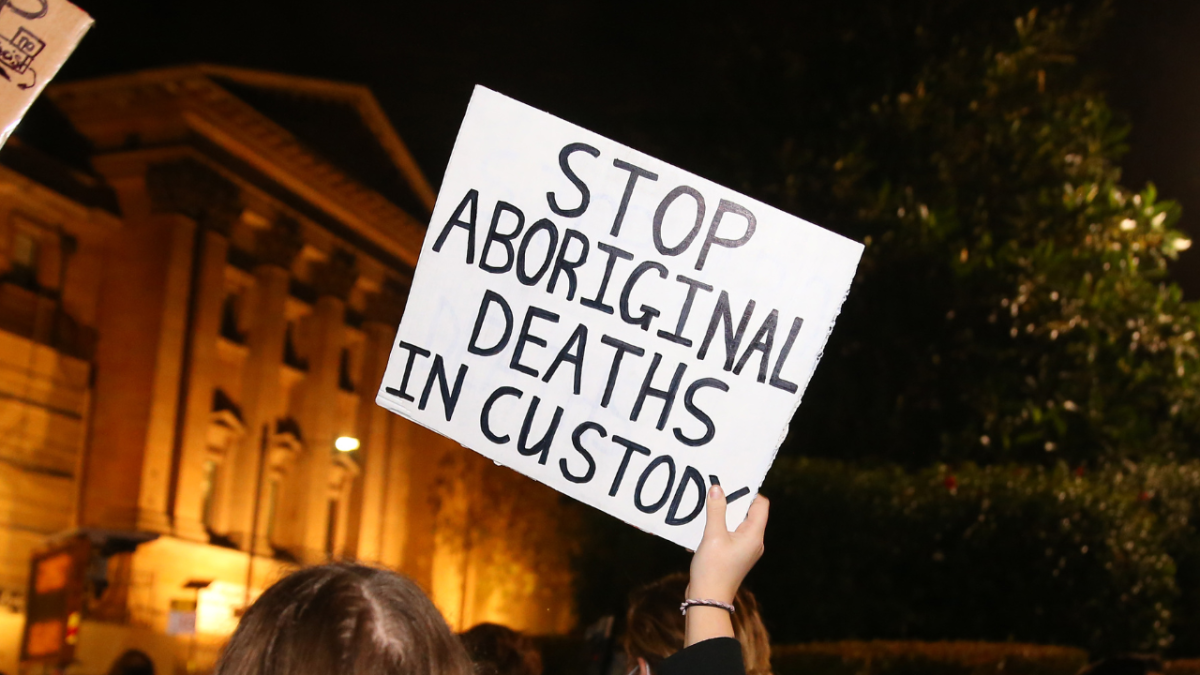
Being intoxicated in public is no longer a crime in Victoria, with the state finally joining NSW, the Northern Territory and SA in decriminalising public drunkenness. However, unlike in other states, Victoria will be prioritising a “health-based” response. Here’s how the new system will work and why it’s so important not just for everyone, but for Aboriginal people specifically.
What is changing?
From Tuesday onwards, being drunk in public in Victoria will be treated as a health issue, instead of a crime or violation of the law — and it’s about time.
Unlike in the other states, where “civil custody” laws still allow police to lock up intoxicated people (which defeats the entire purpose of decriminalisation), the response to people found to be drunk in public will be about helping them get home safely.
Outreach teams made up of nurses and alcohol and drug workers (and run by community health provider cohealth) will patrol streets and provide support services to people who are found to be intoxicated in public, rather than those individuals being arrested and charged with a crime, according to the Alcohol and Drug Foundation.
This can include helping the person contact friends or family, providing food and water to the person, charging their phone or arranging transport home — including with vouchers for Ubers and taxis.
Individuals who don’t want help can say so, and if it’s safe to do so, they’ll be left alone.
If necessary, the outreach teams can also transport people who are in a more serious condition to sobering-up facilities run by cohealth. The organisation plans to have 10 outreach vans, as well as a 6-bed sobering up facility in Fitzroy and a 20-bed facility in Collingwood.
The new “health-based” response will see a prioritisation of mental health services provided to Aboriginal people specifically, who have been disproportionately impacted by public drunkenness laws.
Ngwala Willumbong Aboriginal Corporation will provide outreach programs for Aboriginal people across Melbourne, Frankston and Wyndham. If needed, it can also transport people to a six-bed centre in St Kilda, and then transport them home afterwards so they aren’t left to walk the streets alone.
The Victorian Aboriginal Health Service will run a 24/7 phone service that can respond to calls for help and dispatch outreach teams.
“We’re rolling out pink polos to distinguish our staff from the traditional navy of emergency services and making sure that on the streets to provide a safe environment for people that might otherwise have had really tough interactions with institutions,” said Chris Turner, cohealth’s deputy chief executive, per Guardian Australia.
Why is public drunkenness being decriminalised?
Aboriginal and Torres Strait Islander readers are advised that this story contains the name of a person who has died.
The call for the decriminalisation of public drunkenness has a long history, and one that is rooted in preventing the deaths of Aboriginal people in police custody.
The 1991 Royal Commission into Aboriginal Deaths in Custody recommended the change more than 30 years ago. It found that Aboriginal and Torres Strait Islander people were far more likely to be arrested and imprisoned for being drunk in public, compared to the rest of the population.
However, it wasn’t until the 2019 coronial inquest into the death of Yorta Yorta woman Tanya Day, that the Victorian Government committed to decriminalising public intoxication.
In December 2017, Day fell asleep on a train from Echuca to Melbourne. She was awoken by a train conductor, who called the police.
Instead of being taken to a hospital, Tanya was arrested for being intoxicated and placed in a police cell. She hit her head on a number of occasions and became injured, but police failed to check on her. When officers finally entered her cell, they called 000. However, by then she had been left in a serious condition for three hours. Tanya later died from a brain haemorrhage.
At the time of Tanya’s arrest, Aboriginal women were 10 times more likely to be arrested for being drunk in public than non-Indigenous women, according to the Human Rights Law Centre.
“Our mother would still be here today if the Government repealed the laws criminalising public drunkenness as first recommended over 30 years ago in the Royal Commission into Aboriginal Deaths in Custody. We are glad the government is finally listening and is implementing these changes,” her family said in a statement.
In 2019, after much campaigning from Day’s family, public drunkenness was set to be decriminalised. Initially the reform was set to be implemented on November 7 last year, but this was pushed back to 2023, and the delay attributed to COVID-19.
It’s certainly raised a few eyebrows that the changes are now being implemented on Melbourne Cup day instead of a day significant to the Day family or Aboriginal people in general, but it’s still good that it’s happening nonetheless.
While the new outreach teams are certainly a welcome change, it’s important to note that this doesn’t mean there is no risk at all of police being called on Aboriginal folk who may be intoxicated in public.
“People will no longer be arrested simply for being drunk in public,” Victoria’s minister for mental health, Ingrid Stitt, said per Guardian Australia.
“But if there are other community safety issues at play, then those are matters for Victoria police to deal with.”
Image: Don Arnold/Getty Images
If you’re feeling affected by this content, help is available. There’s no shame in talking about it.
- If you need mental health support, or support involving substance misuse and addiction, please call Lifeline on 13 11 14 or chat online.
- You can also reach the Alcohol Drug Information Service at 1800 250 015 or chat online.
- You can find helplines and resources at DrinkWise.
- Under 25? You can reach Kids Helpline at 1800 55 1800 or chat online.
- If you require immediate assistance, please call 000.
- You can also get in touch with Headspace Yarn Safe online.
- Or you can speak with your NACCHO community health service – find your local member online.



